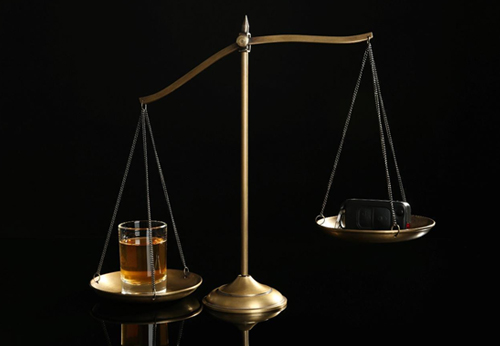Defending A Breath Refusal Case In New Jersey
 In this article, you will learn…
In this article, you will learn…
- What information is gathered during discovery,
- Why video is important to your DWI case, and
- What defenses might be raised for a breath refusal case.
What Information Do You Need As An Attorney To Help With The Ongoing Investigation For My DWI Case?
In an ongoing DWI investigation, information is gathered through a process called discovery. Discovery is just a legal term for obtaining copies of police reports, videos, and any other evidence related to the case. In most municipalities, police departments have officers wear body cameras in addition to their dash cameras.
These videos are the single most important piece of evidence in a case. This is because if a person looks drunk without some explanation, you know what your strategy is going to be. You’re either going to be doing damage control or, if at all possible, working to keep that harmful evidence away from the judge or jury.
Keeping harmful video evidence suppressed is difficult to do unless the police officer selectively records, which does happen sometimes. If that happens, videos can get excluded from evidence because they aren’t a fair and accurate representation of what happened. If police try to conceal or hide evidence and that’s found out, that can lead to the exclusion of that evidence.
Most cops are pretty honest. They do have that little bias favoring prosecution but, for the most part, I’ve found that cops are pretty honest and credible. There are a few bad apples out there, just as there are in any profession, but cops will generally give you what you need to make your arguments through cross-examination.
Video is very important because it cuts through all of the interpretation. Unless you have a serious medical problem, the signs of impairment you exhibit will either appear to be normal for most people dealing with those abnormal ways of standing and walking or, in the case of the unfortunate fellow who blurted out that he was feeling drugs, you’ll get the benefit of the doubt.
There are, of course, other factors to a DWI case. Your statements of admission, such as telling an officer you only had a couple of beers, can also have an effect on the outcome of your case. Every case is going to be different and we assess it all together.
Discovery also includes what happens later in the process, when a person is arrested, put in the police car, taken out of the police car, and walking around the station. We have to also deal with the breath test in most cases. Occasionally there are blood tests, but that’s usually only in cases where there are accidents involved.
If I Refuse The Breath Test, Are There Defenses To That Charge?
Breath test refusal cases are more difficult to defend than DWI cases because the elements of the offense are pretty straightforward and easy for the state to prove. There are only three elements that the state must prove in a breath refusal case:
- Probable Cause
There must have been probable cause to arrest you for driving while under the influence of alcohol or drugs. Probable cause is a relatively low standard and therefore easy to prove. It’s what evidence establishes the reasonable basis on which to continue the investigation.
- The Arrest Was For DWI
The arrest must be for DWI, which often goes together with the first element. There are occasions when a person may have been arrested for something else and then they get into field sobriety testing. Those are very unusual cases, however.
- The Person Was Advised Of Their Rights And Obligations
The state must prove that you were advised of your rights and obligations with regard to breath testing. This is done when an officer testifies that he read a document called a standard statement.
One way to defend the third element is to prove that an officer deviated from those instructions or gave you conflicting advice. This happens quite innocently, because they’re simply trying to put you at ease or for some other innocuous reason. If there are deviations, though, we can attack the breath test refusal based on that third element.
A lot of times people don’t consent to the breath test because they’re confused. They think that they have a right to remain silent and to consult with an attorney. They may even ask for an attorney instead of consenting to the breath test. There is an aspect of that refusal that basically makes the Fifth Amendment inapplicable in these cases, however: They aren’t asking you a question designed to elicit information.
Sometimes when people ask to consult with an attorney, it isn’t necessarily a defense. It can be defensive but, if the state establishes that kind of response, they have what’s called a prima facie case. That means that they have presented enough evidence to get you convicted. Once they do that, the burden then shifts. If you can persuade a judge that you honestly believed that you had a right to consult with an attorney prior to submitting breath staples, that’s a defense recognized under the law.
The practical problem is that this requires a judge to make a finding of fact about what’s in your mind. A judge could just as easily infer that you were trying to avoid the test because you thought you were guilty or that it was simply a mistake on your part, but not enough to rise to the level of a defense.
Practically speaking, what we call the confusion defense does not tend to be very effective. There may be other defenses based on a physical inability to blow. That’s a little easier to establish if you have certain medical conditions like asthma. More novel would be cases involving people with infirmities that affect their ability to perceive.
There was a case involving a woman who had an onset of epilepsy at the time they pulled her over. Some people think that epilepsy involves grand mal seizures, shaking, and fits, which can be true but isn’t always. In fact, most epileptic seizures simply involve a loss of awareness. People can do very complex tasks while experiencing a seizure. We have even had a case involving a man who led police on a 40-mile high-speed chase and we won that case because, believe it or not, he was experiencing an epileptic seizure at the time. Of course, these are very unusual circumstances.
Unfortunately, the vast majority of breath test refusal cases are just people who refuse to give a breath test. They may be doing that because they have a guilty mind, which is what prosecutors are permitted to argue. You may also refuse just because you mistakenly think that you can refuse. The problem is that when you refuse a breath test, you set yourself up for penalties.
The penalties for a breath test refusal are actually a little more severe than they are for drunk driving. There’s a longer period of alcohol ignition interlock restriction associated with the refusal. Long term, if we have a situation like that, I’ll actually advise the person to plead guilty to the refusal if the prosecutor will drop the DWI.
The reason for this is that in New Jersey, these are classified as traffic offenses that remain on your record forever. They cannot be expunged. It’s better to have a refusal on your record because it won’t enhance any later events. If you get nailed again for DWI, now you know enough to blow. So, even if you blow a 0.31 on a second case, as long as the prior was the refusal, that next case would be treated as a first offense.
In terms of social stigma, as well, it’s a lot easier for you to say that you made a mistake in thinking that you could refuse giving a breath sample than for you to say you were convicted of drunk driving. For that reason, having a breath refusal on your record is often preferable over a DWI.
The other interesting thing, though, is that we do have this plea bargaining prohibition. The usual way of justifying a refusal plea and dismissing the DWI is that, without the breath test result as the objective evidence, the state is not in a position to prove you guilty beyond a reasonable doubt. That’s an easy justification that the prosecutor could place on the record.
It’s a little more difficult to get rid of the refusal factually. Maybe you could say the person was confused about the rights but if it’s a choice between taking a first-offense DWI versus a first-offense refusal and the case looks solid from the state’s perspective, I’ll generally counsel that you take the refusal, get rid of the DWI, and move on.
With the guidance of a skilled attorney for DUI Law, you can have the peace of mind that comes with knowing that we’ll make it look easy. For more information on DUI Law in New Jersey, an initial consultation is your next best step. Get the information and legal answers you are seeking by calling (732) 218-9090 today.

